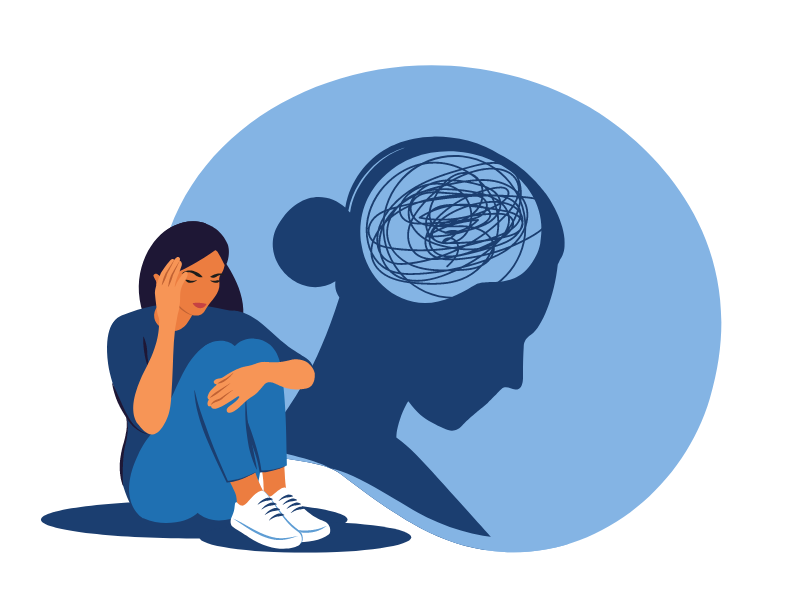For a long time, mental illnesses and mental health disorders were considered taboo subjects, and people felt uncomfortable discussing them or seeking help for their struggles. It led to the spread of rumors and misunderstandings about mental illnesses, often fueled by exaggerated stories in the media. Although progress has been made in breaking the stigma, several common misconceptions about mental disorders persist and may prevent people from seeking the help they need.
These misconceptions can be harmful in various ways. They perpetuate toxic stereotypes, making individuals hesitant to ask for assistance due to fears of judgment. Some may also avoid treatment because of misconceptions about the care they will receive, leaving them struggling on their own and potentially exacerbating their issues.
Let's debunk some of these common misconceptions:
- Myth 1: Mental illnesses are rare: Many people mistakenly believe that mental illnesses are rare, but in reality, they are pretty standard. About one in five individuals will experience a mental health issue at some point in their life, and one in 25 Americans currently live with a severe mental illness. Mental disorders can affect children, teens, and adults, and they come in various forms, ranging from mild to severe.
- Myth 2: Mental health conditions can be overcome with willpower: A common misconception is that willpower and mental toughness alone can overcome mental health conditions. However, mental illnesses are complex and can have various causes, including genetics, trauma, social factors, and neurological issues. Understanding that having a mental health challenge doesn't make someone weak or flawed is essential.
- Myth 3: Medication is necessary for all mental illnesses: Not everyone with a mental illness requires medication to manage their symptoms. Treatment varies depending on the individual and the severity of their condition. While some may benefit from medication, others may find talk therapy, lifestyle changes, or social support networks sufficient for managing their mental health.
- Myth 4: People with mental illnesses can't hold jobs: Another harmful myth is that individuals with mental health conditions cannot work or maintain employment. In reality, many people with mental illnesses are just as productive, dependable, and motivated as those without. Having a job can even be beneficial, providing structure and a sense of purpose.
- Myth 5: People with mental illnesses are more violent: Contrary to popular belief, individuals with mental illnesses are not more violent than others. Only a tiny percentage of violent acts are committed by people experiencing mental health symptoms. In fact, those with mental health conditions are more likely to be victims of crime than perpetrators.
- Myth 6: Recovery from mental illness is impossible: The myth that mental health symptoms are permanent and unchangeable is false. People with mental illnesses can lead fulfilling and meaningful lives with proper treatment and support. Recovery is possible, and many individuals with mental health conditions go on to live happy and successful lives.
Conclusion
Debunking these misconceptions is crucial in promoting a more understanding and supportive attitude toward mental health. Seeking help and treatment for mental illness should not be stigmatized; instead, it should be encouraged and embraced to support individuals on their journey to better mental well-being.
At Solh, we recognize the significance of mental health, so we've curated a range of powerful self-help tools designed to enhance your mental well-being. Our offerings include journaling, goal setting, self-assessment tests, mood analysis, and an extensive library of enriching content for you to explore and learn from. Take charge of your journey towards personal growth and improved mental health with our comprehensive self-help resources.



